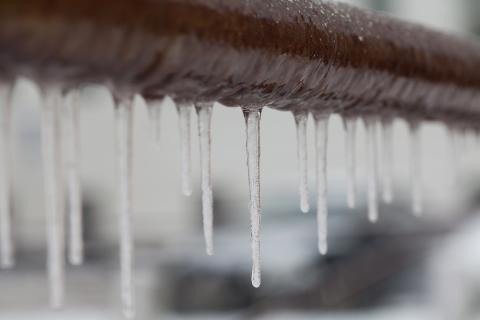
Many people think that allergens are strictly an outdoor issue. While allergens are intensified by the environment, indoor allergens can still cause just as many unsavory side effects that impede daily function. Dust mites, pet dander, mold, mildew, and even insect droppings can trigger allergy and asthma symptoms. Allergens are carried through the air and found on furniture, floors, carpets, rugs, and other surfaces. While no home can be 100% allergen free, mitigating against these unwanted house guests is simple. Follow these tips to reduce the number of allergens in your home to live healthy and comfortable year-round! Do you need help eliminating allergens? Start with an HVAC inspection by Stephens! Learn more here.
Get Rid of Dust
Dust bunnies sound cute, but the amount of allergens they carry is not. The key allergens that kickstart asthma thrive in the dust. Regularly ridding your home of dust is one of the best ways to get indoor allergens under control. Dusting with a duster offers temporary relief, but it can actually fling allergen particles into the air as you move the dust around. Sweeping has the same effect. That’s why using a damp or treated cloth to clean is the most effective in not relocating, but removing dust entirely. Minimizing clutter in your home is also important to prevent dust from collecting in hard-to-reach nooks and crannies.
Vacuum Weekly
Vacuuming in areas that receive the most traffic in your home - the living room, mudroom/entryway, and kitchen - can help control allergies. Vacuuming sucks up particles that are otherwise impossible to clean with just a cloth or broom. It doesn’t matter if you “Swiff it good;” odds are, you’ll still be left with remaining allergen carriers. Use a vacuum with a filter weekly to trap the smallest particles to keep them from being ejected into the air. Vacuuming frequently will also keep you feeling sane and not as overwhelmed so you can cross off other chores off your list.
Wash Them Away
Dust mites are sneaky. They wiggle their way into your bedding, pillows, and even drapes. Because we spend so much time in our bedrooms, it’s important to reduce allergens by washing our pillowcases, sheets, and blankets either once a week or once every two weeks in hot water. Also, try to prevent bringing food or drinks into bed; if you do, at least clean it up right away to stop insects from snagging your leftovers. Allergen-free pillowcases and covers are also great defenses against pesky germs and allergen particles.
Prevent Mold & Mildew
As a plumbing company, we’ve seen the worst when it comes to mold and mildew. These fungi thrive in damp bathrooms and basements. Mold spores also float through the air like pollen and cause many allergy symptoms. If you find mold or suspect your allergies are due to mold, it’s time to take action. Replacing older wallpaper with tile, painting walls in mold-resistant paints, and removing all moldy carpeting can set your home and family up for prolonged health. Turn on your exhaust fan while you shower and continue to run it for several minutes after to ensure minimal moisture has seeped into the surrounding walls. If you do find mold on your shower walls, scrub it away as best you can before calling in a professional.
Keep The Outside Out
The last thing you need is to let pollen, one of the most potent allergens, waltz right into your home. Keep your doors and windows shut, particularly at night. In the winter, this is a given, but that doesn’t mean you won’t track other particles in. As it gets warmer, it’s an important step to consider if you’re constantly plagued by symptoms. If you’ve recently been in contact with a lot of pollen, wash your clothes and take a shower to rid your body of pollen residue.
Take Care of Your Pets
For pet owners, pets can also track pollen and other allergens into your home on their fur or paws. Make sure you’re washing them frequently to reduce pollen and pet dander from becoming airborne or attaching to your furniture. On their own, pets carry a natural protein in their dander, saliva, and urine that causes allergy symptoms for many people. Vacuuming and keeping them out of certain areas, especially after they’ve been outside, will help reduce the number of allergens that view your pets as a free ticket into your home.
Contact Stephens for a plumbing or HVAC service estimate today!

